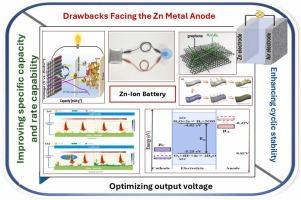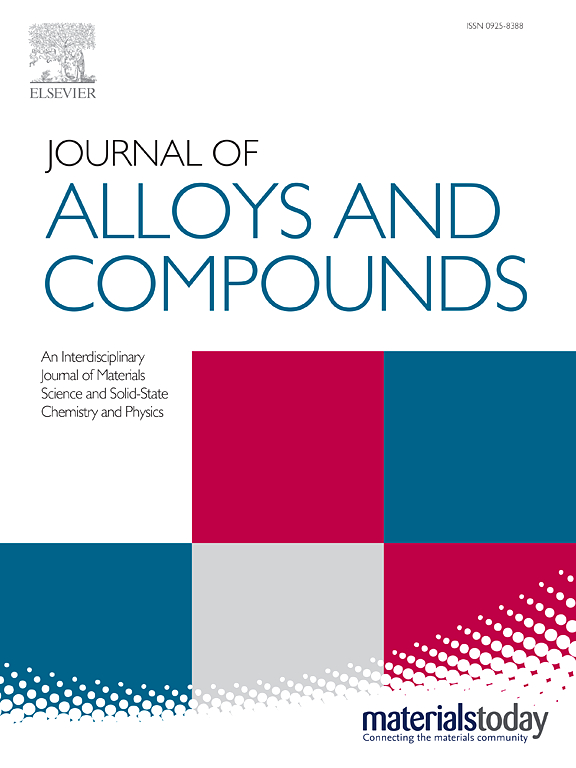锌离子电池:可持续能源存储的缺点、机遇和优化性能
IF 6.3
2区 材料科学
Q2 CHEMISTRY, PHYSICAL
引用次数: 0
摘要
为了有效利用和分配可再生能源,解决能源储存问题,创造高效的能源储存和转换技术是至关重要的。锌对可再生能源至关重要。除了对太阳能电池板和风力涡轮机的贡献外,它还可能促进低成本、环保能源储存方法的发展。关于锌离子电池(zib),其高锌含量、易于组装和安全性为大规模储能应用提供了前景。锌电池占世界电池市场的三分之一,其机遇和挑战的动力包括基于锌的技术。由于脱溶动力学的重要性,水合锌离子的复杂脱溶过程已被确定为影响水中电极反应动力学的关键方面。锌阳极改性、正极材料设计、电解液开发与优化等方面的研究已被广泛报道。主要问题包括锌枝晶、析氢过程(HER)以及锌阳极热力学不稳定性引起的腐蚀和钝化。低库仑效率(CE)是由于副反应消耗电解液和锌阳极引起的。本文将讨论ZIB性能的潜在缺点以及优化其性能的最新解决方案。文中还详细讨论了如何提高比容量、倍率能力、循环稳定性和输出电压。本文章由计算机程序翻译,如有差异,请以英文原文为准。

Zinc-ion batteries: Drawbacks, opportunities, and optimization performance for sustainable energy storage
In order to effectively utilize and distribute renewable energy sources and address the energy storage problem, creating highly efficient energy storage and conversion technologies is crucial. Zinc is essential to renewable energy sources. Apart from its contribution to solar panels and wind turbines, it can potentially facilitate the development of low-cost, environmentally friendly energy storage methods. About Zn-ion batteries (ZIBs), their high zinc content, ease of assembly, and safety provide promising large-scale energy storage applications. A motivation to the opportunities and the challenges for ZIBs as a third of the world market for batteries comprises technologies based on zinc. Because of the importance of the desolvation kinetics role, the intricate process of desolvation of hydrated zinc ions has been identified as a pivotal aspect affecting the kinetics of electrode reactions within aqueous (ZIBs). Research on zinc anode modification, cathode material design, and electrolyte development and optimization have been widely reported. Significant problems include zinc dendrites, the hydrogen evolution process (HER), and corrosion and passivation caused by the thermodynamic instability of the zinc anode. Low Coulombic Efficiency (CE) is caused by side reactions that deplete the electrolyte and zinc anode. Herein, the article will discuss the underlying drawbacks of ZIB's performance and recent solutions to optimize its performance. How to Improve specific capacity, rate capability, cyclic stability, and output voltage is also discussed in detail.
求助全文
通过发布文献求助,成功后即可免费获取论文全文。
去求助
来源期刊

Journal of Alloys and Compounds
工程技术-材料科学:综合
CiteScore
11.10
自引率
14.50%
发文量
5146
审稿时长
67 days
期刊介绍:
The Journal of Alloys and Compounds is intended to serve as an international medium for the publication of work on solid materials comprising compounds as well as alloys. Its great strength lies in the diversity of discipline which it encompasses, drawing together results from materials science, solid-state chemistry and physics.
 求助内容:
求助内容: 应助结果提醒方式:
应助结果提醒方式:


